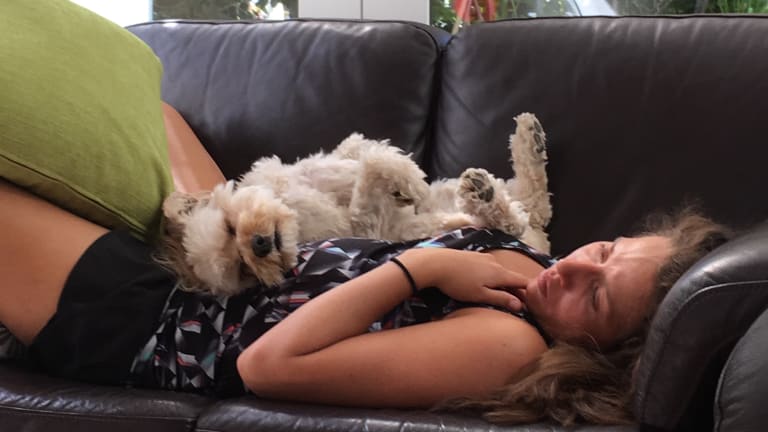On Tuesday, Irina Falconi defeated Xinyun Han of China in the first round of the Australian Open, 6-1, 7-5. This is not new territory for the 26-year-old American, who has reached the second round of the season’s first Slam for the fourth consecutive year. But it remains a feat nonetheless, for a variety of reasons.
Falconi will face compatriot Nicole Gibbs on Thursday. But first, she breaks down what happens during this busy, nerve-wracking, exciting and intimidating time for professional tennis players: the first round of a Grand Slam tournament.
I’ve gotten over my whole “not wanting to know who I play” system. At first, I had a pretty good method to my madness, which was, It shouldn’t matter who I play, I can only take care of my side of the court. But then I realized that, just the same, it doesn’t matter if I know who I play either. Now I can scout, check out notes from previous meetings and feel more prepared. It’s also really tough to avoid the draw around the grounds because that’s all people ask about.
It’s always relieving to not see a seed right off the bat, but at the same time, the first rounds are the best time to get them—look at Shelby Rogers taking out Simona Halep. There’s quite an advantage to be seeded. There’s only been a few times where I’ve been seeded in a WTA tournament, but to know that I don’t have to play a seed until at least the quarters is huge.
When I’m trying to close out a tight second set after cruising through the first set, all I’m thinking about is first serves on each point. I don’t have a 130 M.P.H. serve, so for me to get my first serve in is an advantage. On Tuesday, especially, I wanted to take care of business because that heat was killer. It’s not easy playing in 90-degree weather.
My immediate schedule post match goes as follows:
- Get all my towels and shove them deep in my bag.
- Sadly say no to the fans that want the towels.
- Have my boyfriend grab my bag while I hug my friends and family that are here.
- Head to the gym to do a cool down and stretch.
- Eat.
- Get treatment with a physio.
- Do press.
- Recover in the cold tub.
- Head home and chill with Bailey (my housing family's dog) and often times eat some Indian food for dinner.

